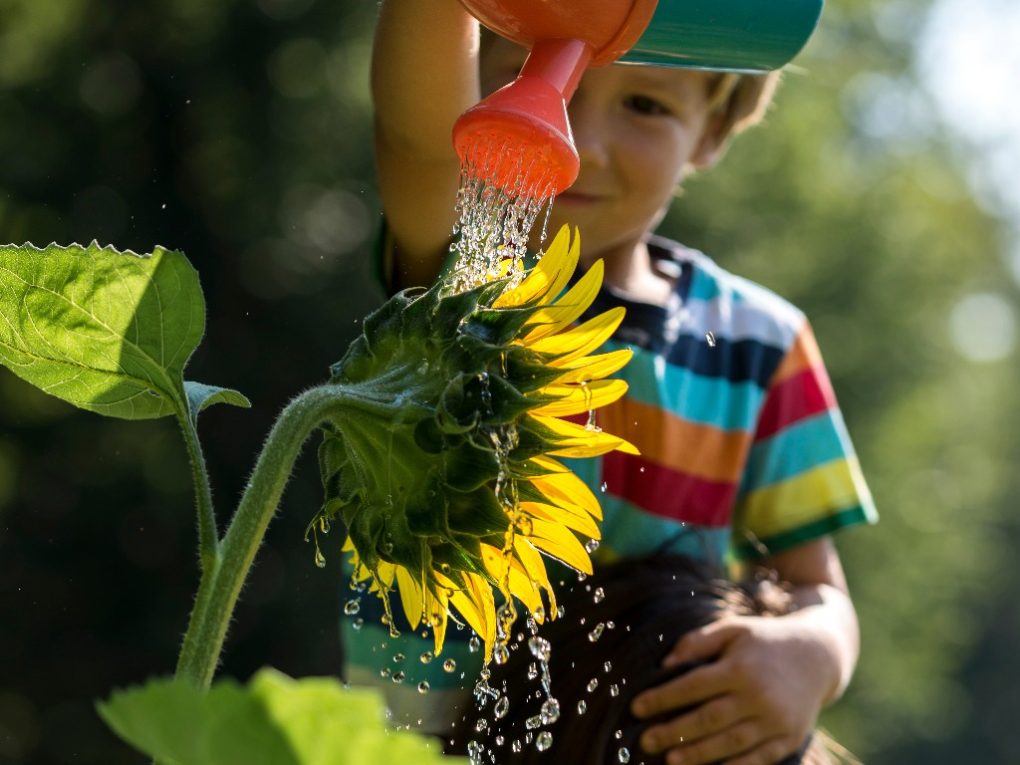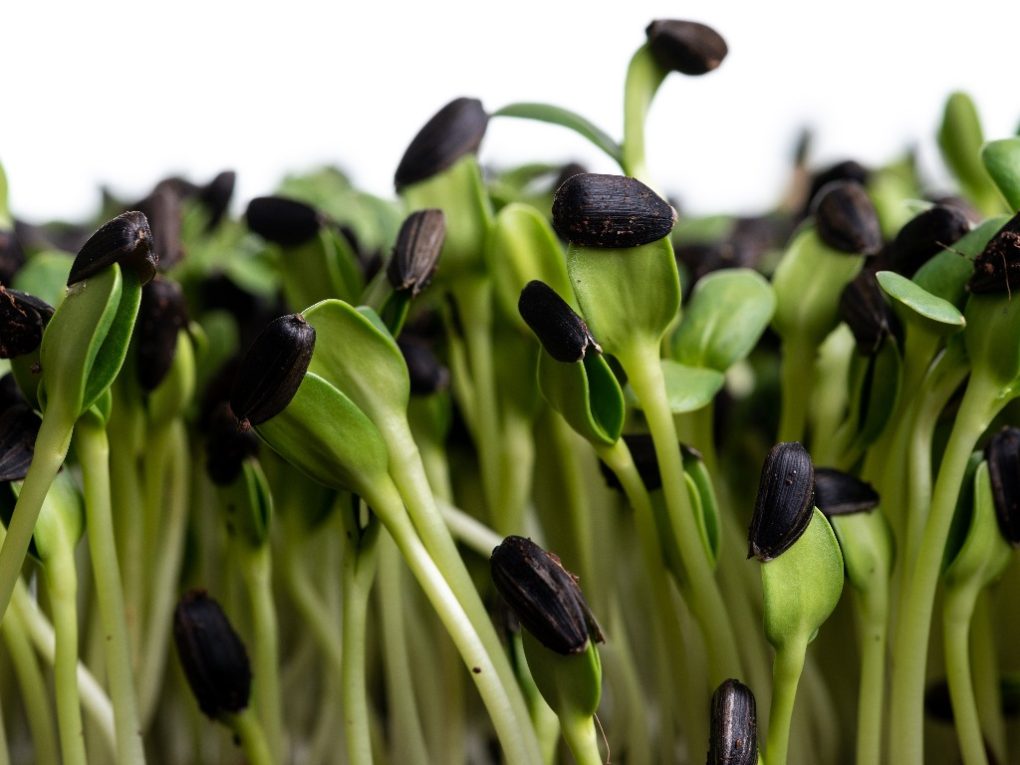Do Sunflowers Grow Fast: A Quick Guide to Sunflower Growth Rates
Yes, sunflowers grow fast. Sunflowers are known for their relatively fast growth rate, especially during their early stages of growth. In ideal growing conditions, sunflowers can grow up to 8 to 12 feet tall in as little as 3 to 4 months. Sunflowers are a popular choice for gardeners and farmers alike due to their bright, cheerful appearance and ability to attract pollinators.

The answer depends on several factors, including the variety of sunflowers, growing conditions, and the care provided. For example, some sunflower varieties can grow up to 16 feet tall and produce flowers over a foot in diameter, while others are more compact and grow to only a few feet in height.
Despite these differences, sunflowers are generally considered fast-growing plants. With proper care and ideal growing conditions, sunflowers can reach their full height and produce flowers in as little as three months. However, it is vital to note that individual growth rates may vary and that good husbandry practices are essential for maximizing growth and yield.
Table of Contents
Factors that Affect Sunflower Growth
Temperature
Temperature plays an important role in the growth of sunflowers, according to MPDI. Sunflowers grow best in warm temperatures ranging from 70°F to 78°F. Temperatures below 50°F can stunt their growth, while temperatures above 90°F can cause the leaves to wilt and the plant to dehydrate. Therefore, it is important to ensure that the temperature is suitable for the growth of sunflowers.
Watering
Watering is another important factor that affects sunflower growth. Sunflowers require a consistent supply of water to grow properly. They need at least 1 inch of water every week and more during hot and dry weather. Based on experience, overwatering can cause root rot, while underwatering can lead the plant to wilt and stunt its growth. Therefore, it is important to water sunflowers regularly and monitor the soil’s moisture level.

Soil Quality
The soil quality is also an important factor affecting sunflower growth. Sunflowers require a well-drained soil that is rich in organic matter. The soil must have a pH level of 6.0 to 7.5. Adding compost or other organic matter to the soil helps improve its quality and provide the nutrients for the sunflowers to grow. Therefore, it is important to ensure that the soil is suitable for the growth of sunflowers.
Sunlight
Sunflowers require plenty of sunlight to grow properly. They need at least 6 hours of direct sunlight everyday. Insufficient sunlight can cause the plant to become weak and stunted, while too much sunlight can make the leaves to wilt and the plant to become dehydrated. Ensuring that the sunflowers receive enough sunlight to grow properly is important.
Sunflower Growth Stages
Sunflowers are known for their bright yellow petals and tall stalks. These plants go through several stages of growth before reaching maturity. Understanding the different stages of sunflower growth can help gardeners care for their plants and maximize their yield.
Germination
The first stage of sunflower growth is germination when the seed begins to sprout and develop roots. Sunflower seeds typically germinate within 7 to 10 days of being planted. The ideal temperature for germination is between 70 and 85 degrees Fahrenheit. Once the seed sprouts, it grows roots and develops a small stem.

Vegetative Growth
The sunflower plant develops its leaves and stems during the vegetative growth stage. This is when the plant grows rapidly and becomes taller. Sunflowers need plenty of sunlight and water during this stage to grow big and strong. The vegetative growth stage typically lasts 35 to 65 days, depending on the variety of sunflowers.
During this stage, it’s important to watch for pests and diseases that can damage the plant. Common pests that affect sunflowers include aphids, caterpillars, and slugs. In addition, gardeners can use insecticidal soap or other organic pest control methods to keep these pests at bay.
Reproductive Growth
The reproductive growth stage is when the sunflower plant produces buds and flowers and when the plant starts to develop its iconic yellow petals. The reproductive growth stage typically lasts 30 to 45 days, depending on the variety of sunflowers.
During this stage, it’s important to ensure the plant has enough water and nutrients to support the development of the flowers. Gardeners can use a balanced fertilizer to give the plant the necessary nutrients. It’s also important to deadhead the flowers as they wilt to encourage the plant to produce more blooms.
Tips for Growing Sunflowers Faster
Choose the Right Variety
When selecting sunflower seeds to plant, choosing a variety known for its fast growth is important. Look for varieties like the Russian Giant, which can grow up to 14 feet tall in just a few months. Dwarf varieties like the Teddy Bear or the Sunspot are also good choices for quick results.

Plant at the Right Time
To ensure fast growth, sunflowers should be planted when the soil has warmed up, and all danger of frost has passed. In most areas, this means planting in late spring or early summer. Sunflowers also need plenty of sunlight, so choose a location that receives at least six hours of direct sunlight each day.
Provide Adequate Nourishment
Sunflowers need plenty of nutrients to grow quickly and strongly. Before planting, work some compost or well-rotted manure into the soil to provide a steady supply of nutrients throughout the growing season. Fertilizer can also be used, but be careful not to overdo it, as too much fertilizer can stunt growth.
Prune and Deadhead Regularly
Pruning and deadheading sunflowers can help to promote faster growth and more blooms. Deadheads spent flowers regularly to encourage the plant to produce more buds. Prune back any damaged or diseased leaves or stems to prevent the spread of disease and redirect the plant’s energy toward healthy growth.

Growing sunflowers can be a fun and rewarding experience, especially when they grow quickly and produce abundant blooms. By choosing the right variety, planting at the right time, providing adequate nourishment, and pruning regularly, gardeners can help to ensure that their sunflowers grow as fast and strong as possible.
